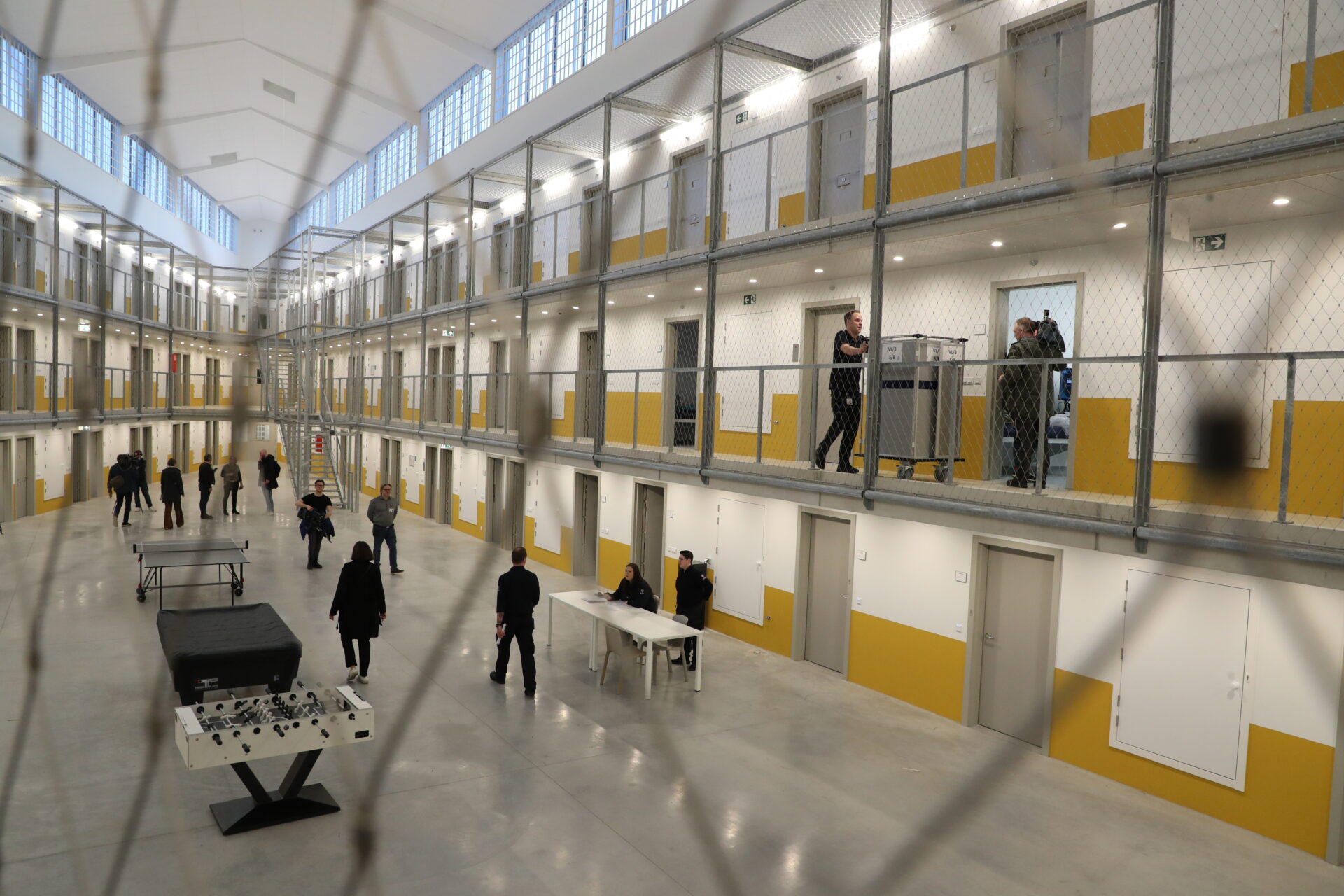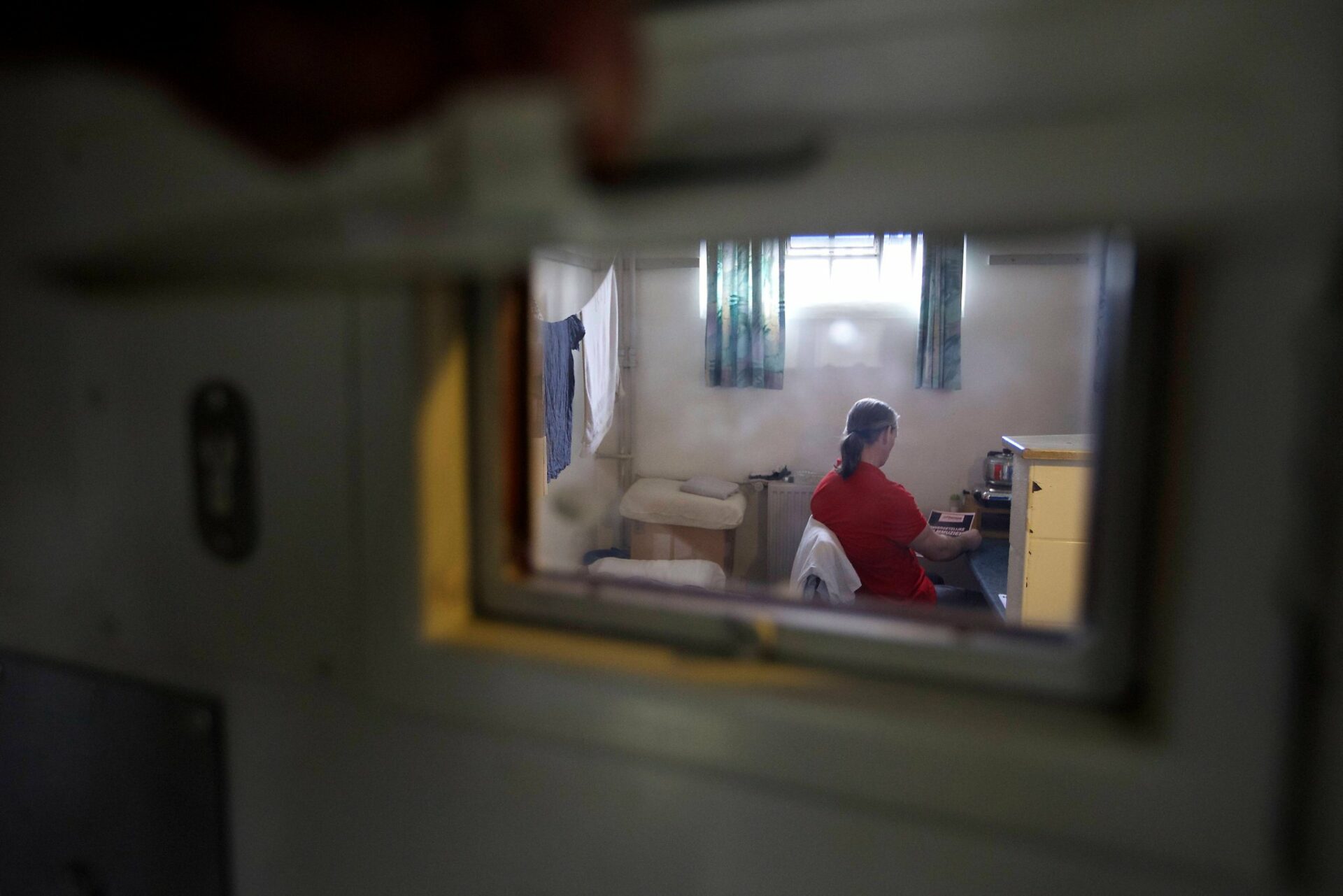Prison workers across the country called another strike on Thursday, following a run of similar actions which highlight the chronic failures of Belgium's penal system. But is there any way out of the decades-long crisis?
Employees at Haren and Saint-Gilles prisons announced a 24-hour strike on Thursday night in protest of inmate overcrowding and staff shortages. Strike alerts have now become routine as the Belgian prison system is one of the most overcrowded in Europe, notorious for everything from bedbugs to abuse scandals, not to mention distinct under-staffing.
Industrial action by prison staff has put these issues in the spotlight for years, but their working conditions and the quality of life for inmates has improved little.
Dorien Brosens is a postdoctoral fellow at VUB and specialises in educational activities and prison reintegration schemes. She points to the impact of strikes on inmates but stresses the challenges that prison officers face and believes they are doing their best.
"The prison system is in huge crisis and the amount of people imprisoned is rising and rising," she told The Brussels Times. "I am convinced that everyone who is working inside the prison system wants to do good but there just aren't enough staff to make this possible."
An 'old-fashioned' system
Years of strikes have done little to improve the two major issues: understaffing and overcrowding. Brosens says structural change is slow and the system remains "old-fashioned".
To tackle overcrowding, those convicted to sentences of less than three years were not interned. This changed in 2022 with the introduction of "detention houses". But a lack of space in these more relaxed facilities mean that many end up serving time in the traditional prisons.

Credit: Belga / Nicolas Maeterlinck
Staff and detainees recognise the need for change but strikes have a negligent effect on those trapped on the inside. During the actions, prisoners are confined to their cells. Classes, health appointments, religious services and family visits are all cancelled.
"People end up sitting in their cells for the duration of this challenging time," says Brosens. "99% of inmates are released after their sentence and their social network is so important in this regard."
International condemnation
The Belgian system has drawn international criticism from key human rights organisations. On Friday, the Council of Europe urged Belgium to improve its care of psychiatric patients inside its prisons. This cohort has suffered systematically due to a lack of space and qualified care staff.
A 2023 Amnesty International report criticises the Belgian prison system for "insufficient access to basic services – especially medical care and sanitation."
Brosens sees small-scale detention as a salve for these enormous issues, partly because "prison is not the solution for everyone" and incarceration can "make problems worse." By addressing this ideological shortfall, repeat offences might decrease, provide relief to the system and improve the quality of care.

An inmate in a Brussels prison. Credit: Belga
She also believes that the emphasis should be on reintegration schemes carried out during prison sentences. For instance, the 'Learning Inside Out' project aims to create a "bridge between the inside and outside world" by providing access to external education programmes on a one-to-one basis.
"Reintegration is a societal responsibility; no one can do it alone. Structural problems often lead people to prison. They often grew up in poverty or lived through a series of things that went wrong. Then they end up in prison and it is very challenging for them to break the circle and come out better."

